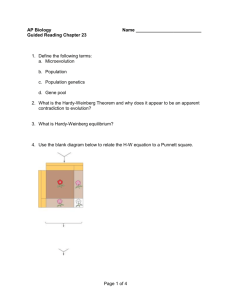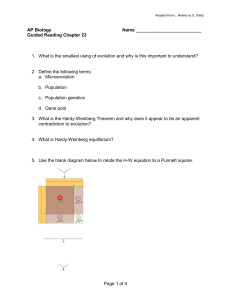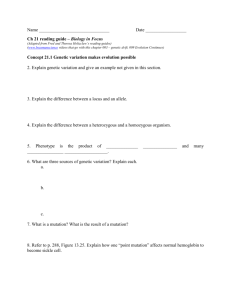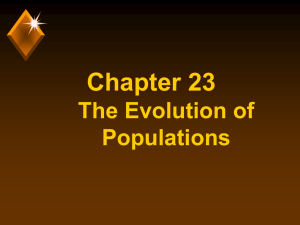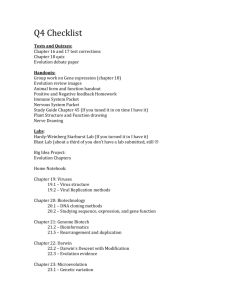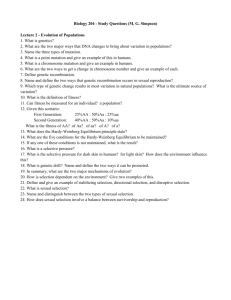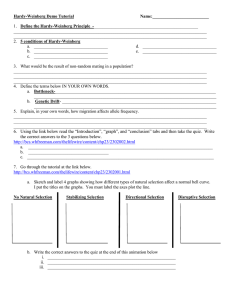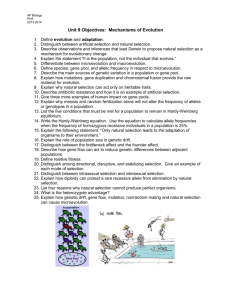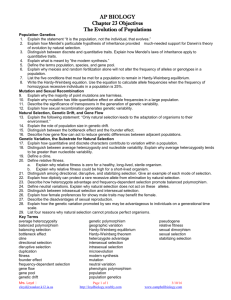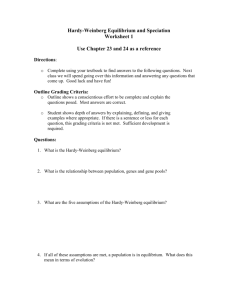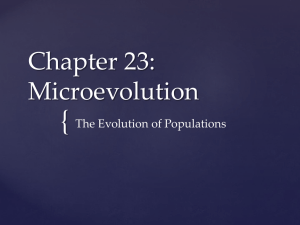AP Biology
advertisement
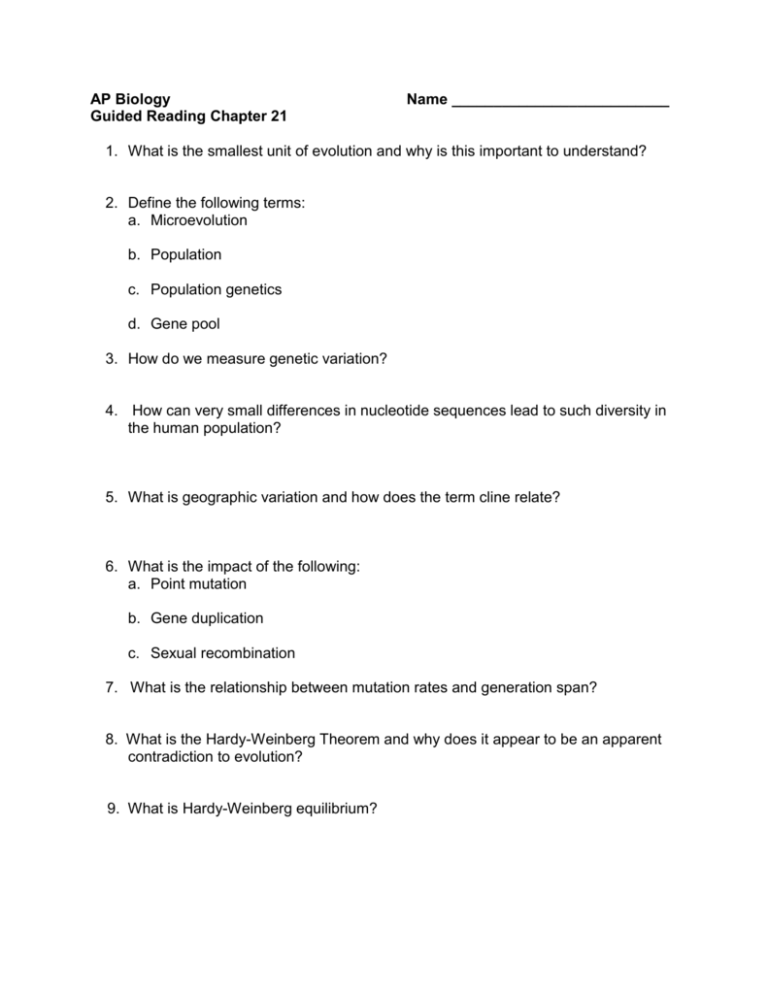
AP Biology Guided Reading Chapter 21 Name __________________________ 1. What is the smallest unit of evolution and why is this important to understand? 2. Define the following terms: a. Microevolution b. Population c. Population genetics d. Gene pool 3. How do we measure genetic variation? 4. How can very small differences in nucleotide sequences lead to such diversity in the human population? 5. What is geographic variation and how does the term cline relate? 6. What is the impact of the following: a. Point mutation b. Gene duplication c. Sexual recombination 7. What is the relationship between mutation rates and generation span? 8. What is the Hardy-Weinberg Theorem and why does it appear to be an apparent contradiction to evolution? 9. What is Hardy-Weinberg equilibrium? 10. Use the blank diagram below to relate the H-W equation to a Punnett square. 11. What are the five conditions for H-W equilibrium to maintained? 12. How can the H-W equation be used to today in terms of human health? 13. What are the two broad processes that make evolution possible? 14. Define the following: a. Genetic drift b. Bottleneck effect c. Founder effect d. Gene flow 15. Why would we discuss adaptive evolution and what role does natural selection play? 16. What is different about the terms fitness and relative fitness? 17. Why is it said that evolution acts on phenotypes and not genotypes? 18. Use the diagram below to differentiate between the modes of selection. 19. Why does diploidy preserve genetic variation? 20. How does balancing natural selection relate to the term balanced polymorphism? 21. Define and give an example of the following: a. Heterozygote advantage b. Frequency dependent selection c. Neutral variation d. Sexual dimorphism e. Intrasexual selection f. Intersexual selection 22. What are the limitations to natural selection?
